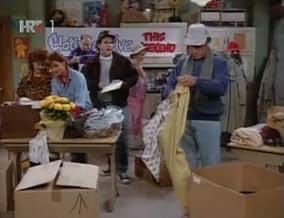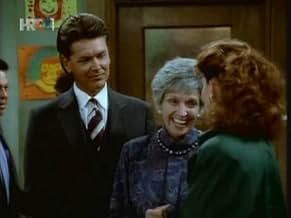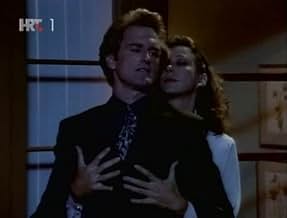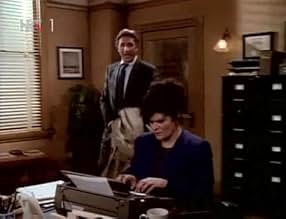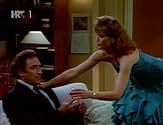Añade un argumento en tu idiomaA divorced man tries to get his life back in order after losing everything to his ex-wife.A divorced man tries to get his life back in order after losing everything to his ex-wife.A divorced man tries to get his life back in order after losing everything to his ex-wife.
- Ganó 1 premio Primetime Emmy
- 5 premios y 3 nominaciones en total
Explorar episodios
Argumento
¿Sabías que...?
- CuriosidadesThe letter Wendy leaves for John reads the following: Dear John, I know that this will come as a great shock to you and I pray that in time you will come to understand why I had to leave. The love that I once had for you died many years ago, although I have tried desperately to pretend otherwise. Wendy
- Créditos adicionalesThe Season 1 opening title sequence is a near-shot-for-shot re-creation of the original British series titles.
- ConexionesFeatured in The 41st Annual Primetime Emmy Awards (1989)
Reseña destacada
This is a funny TV series, because the title character, played by Judd Hirsch, is willing to be a straight man to the other characters in a support group he attends.
In essence, much as "Good Times" is Kid Dynamite's show, this is really Jere Burns show as he portrays the rogue, Kirk. Kirk is just enough of a rascal to cherish and laugh at, both at the same time.
The others put in a dash of humor, too, one of them without ever saying a word.
The standard for comedy in the eighties was a comedy that would make people laugh. That's what this show did. It din't try to be too "situational", and hope for a smile, the way most comedies of the nineties and naughts do. It reached for the guts, and pulled them out.
This wasn't "slapstick", but just a bit shy of it. It jumped the shark a bit at the end, and that didn't work. It was best when staying true to its character of the support group.
In essence, much as "Good Times" is Kid Dynamite's show, this is really Jere Burns show as he portrays the rogue, Kirk. Kirk is just enough of a rascal to cherish and laugh at, both at the same time.
The others put in a dash of humor, too, one of them without ever saying a word.
The standard for comedy in the eighties was a comedy that would make people laugh. That's what this show did. It din't try to be too "situational", and hope for a smile, the way most comedies of the nineties and naughts do. It reached for the guts, and pulled them out.
This wasn't "slapstick", but just a bit shy of it. It jumped the shark a bit at the end, and that didn't work. It was best when staying true to its character of the support group.
- drystyx
- 21 ago 2012
- Enlace permanente
Selecciones populares
Inicia sesión para calificar y añadir a tu lista para recibir recomendaciones personalizadas
- How many seasons does Dear John have?Con tecnología de Alexa
Detalles
Contribuir a esta página
Sugerir un cambio o añadir el contenido que falta


